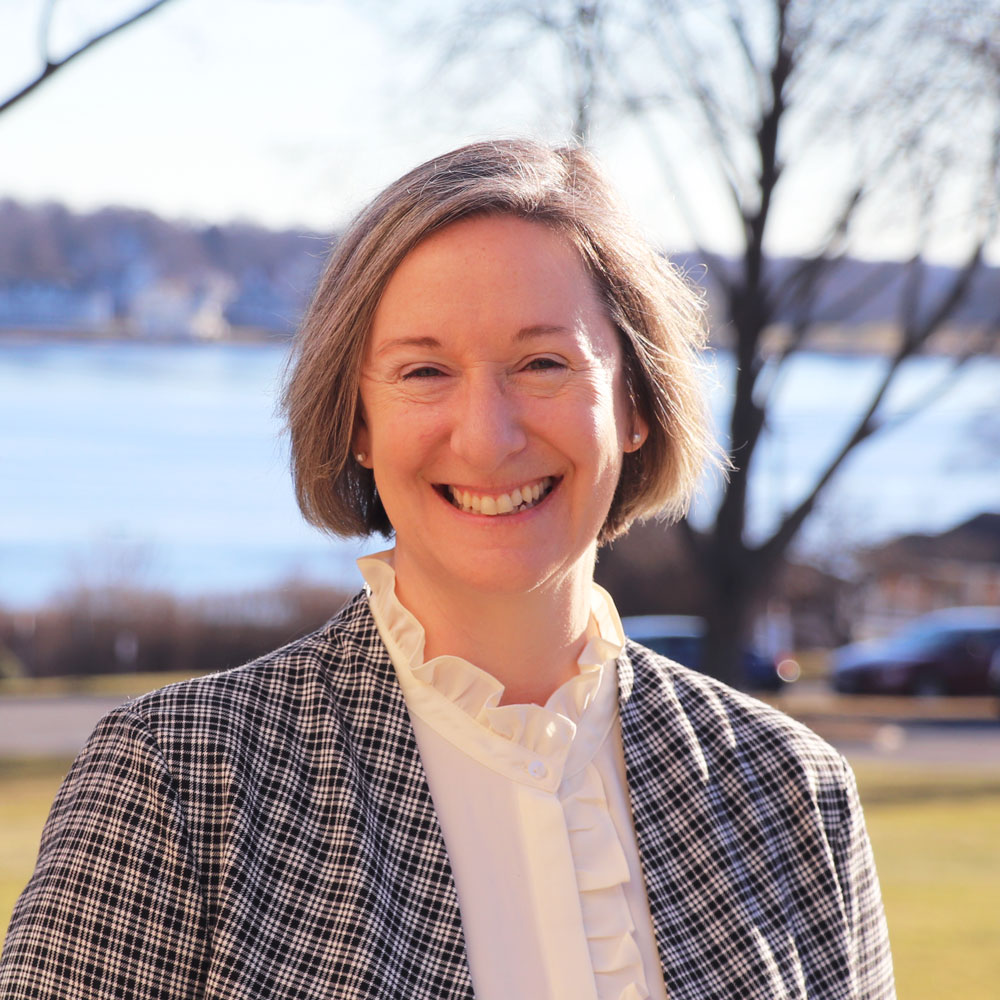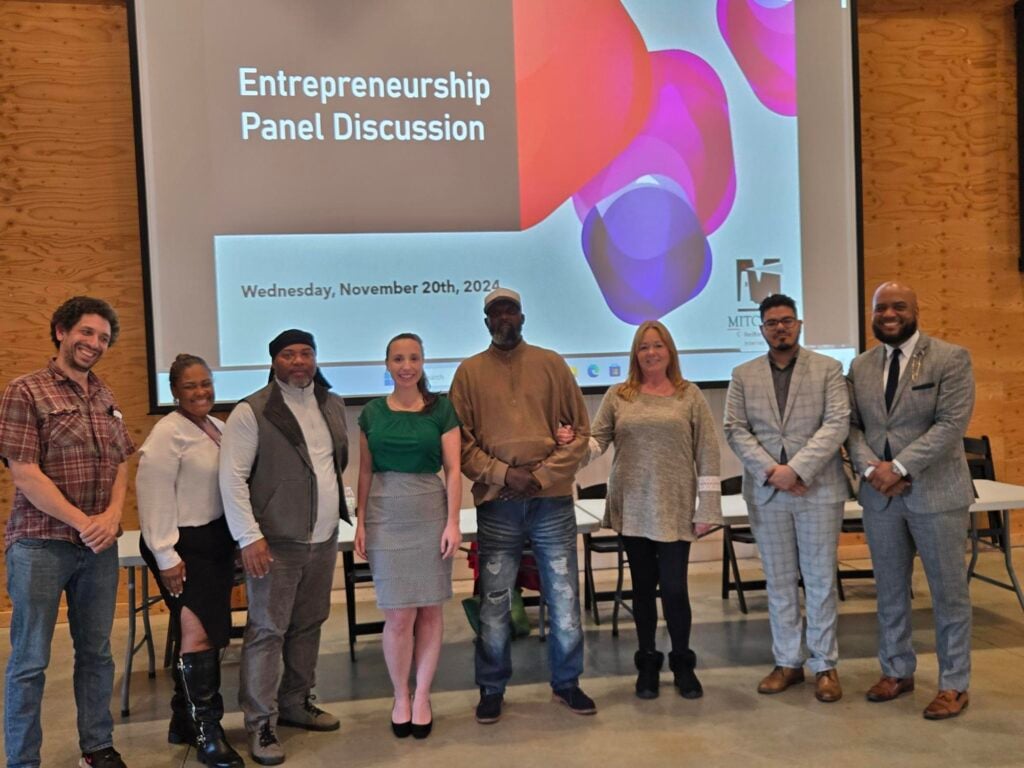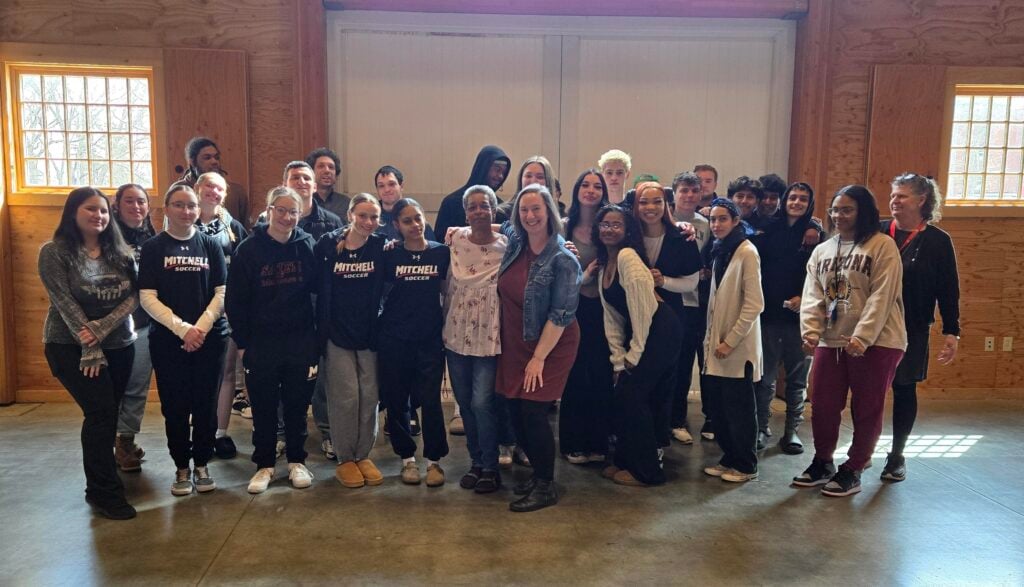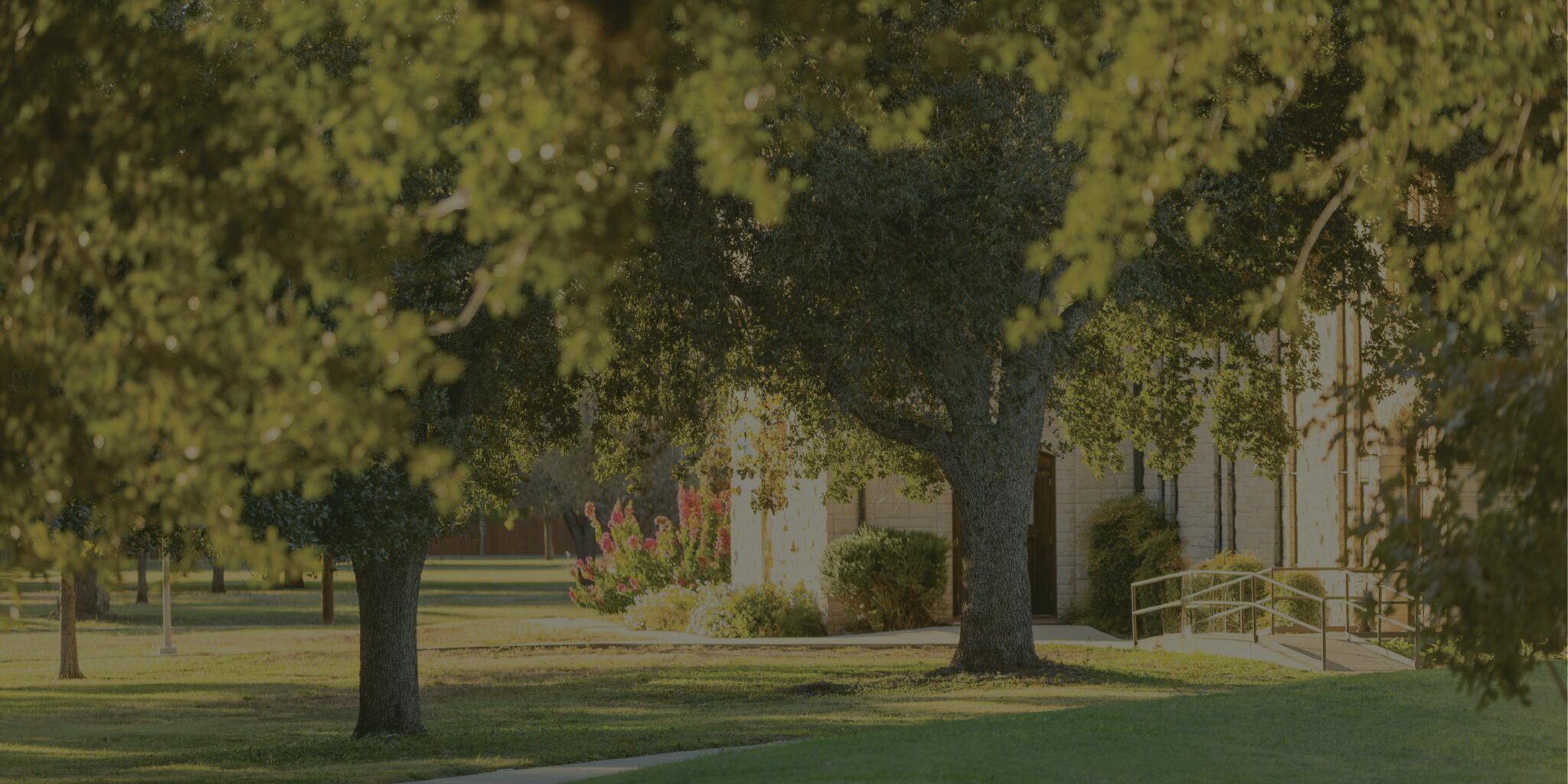Campus Spotlight
Trying New Things: Mitchell College’s Grant Proposal of Experiments
By Daniel Meyers, NetVUE Chaplaincy Planning Initiative and Online Community Coordinator
This coming spring, NetVUE will host its national conference with a sweeping menu of opportunities for learning and connecting across the network. But something else will be offered as well: organic moments to spark momentum on your campus. That is precisely what happened at the 2022 NetVUE Conference in Dallas for Meredith Adler, director of the first-year experience at Mitchell College in New London, Connecticut. As Adler participated in the conference, she knew she could dramatically expand Mitchell’s first-year experience offerings, but she did not have the resources to do so. She came out of a grant information session in Dallas flooded with new ideas and ran into her institution’s president, Tracy Espy. Adler asked if they could submit a grant proposal, and Espy simply said, “Yes!” In 2022 Adler and her team applied for a NetVUE Program Development Grant, which they started implementing in the fall of 2023. Adler explained, “The first year was the time to experiment and the second year was the time to implement.” This spotlight is a story of how a small school used a grant to try new things, learn in the process, and make big changes.

Prior to the Dallas conference, Adler’s first-year program mainly focused on courses and mentoring in the fall semester. But after her conversation with her president, she thought, “Finally, I could have a second semester!” She had been talking to members of the faculty and staff for years about improving the program, and their input helped generate several new ideas. Mitchell College envisioned a service-learning component, connections among faculty members who taught upper-division courses and first-year students, and programs to strengthen student belonging both on campus and in the New London community. She also realized that being a small institution with fewer than 600 students allowed them to implement these changes more affordably than larger institutions. “Being so small,” Adler observed, “training members of our faculty, hiring student mentors, and supporting staff is a lot cheaper than other places.”
Adler sought to address the college’s issues through a great many initiatives, many of which are still operating today. But three examples from the grant project are worth a closer look. First, instructors developed a course for first-year students called New London: Then and Now, which ties student learning to the local community. It meets twice a week—once for individual sections to explore local places like civic sites, historical locations, or art installations, and once for a class session with guest speakers, including the mayor and local business owners. The goal of the course is to create a sense of purpose tied to a place, encouraging students to feel belonging, safety, and confidence as they navigate a new life in a new home. Feedback from community partners and students has demonstrated the success of the course. After describing the outstanding effect this course has, Adler smiled and said, “All of this is based on money from NetVUE; it is truly magic.” She’s grateful that campus leaders support the continuation of the course, which Mitchell College will fund beyond the life of the grant.

A second example illustrates how campus leaders might pilot one program only to realize that students need something else entirely. To support students outside the classroom, Adler initially created gatherings called Meet and Eats, where senior faculty members designed unique social events to meet with first-year students and to build relationships. While students liked the events, they shared that the varying times and locations made it difficult for them to attend all the sessions that interested them. This feedback led organizers to host all the Meet and Eat events at one time, which morphed into a dynamic, larger majors fair called Meet and Treats that took place around Halloween. Mitchell College had not hosted a majors fair before, but the Meet and Eats feedback led to evidence that they needed one. Thus, a disconnected series of social gatherings turned into a vocational event in which students gathered information about their academic interests, met key faculty members in these areas, and reflected on their college direction—all at one program. Even though the first version of this program was a success, what it turned into fulfilled a greater campus need.
Last, Adler introduced the Speaker/Seeker Series. This program was designed to host local speakers on campus and to organize field trips for first-year students to engage in experiential learning. The speaker events were excellent and successful, but organizers quickly noticed that the logistics of the off-campus learning was a hurdle. As they reflected on these challenges, Adler and her colleagues realized that the New London course was meeting the main goals of this program, so they decided to discontinue the Speaker/Seeker Series and invest more in the new course, increasing the course credits from two to three. As this example illustrates, sometimes great work is already happening, and it requires wisdom to see the redundancies and decide where to focus and possibly merge programs. It was important for the college to start with a wide range of ideas, and then to narrow them down and to identify which projects were working well. This is one of the goals of NetVUE’s grant programs: to give institutions the flexibility to try new things, recognizing that not all of them will be successful (but providing the opportunity for the institution to learn).

Smaller institutions—or “micro-colleges,” as Adler describes Mitchell—might think they do not have the staff or the infrastructure to warrant a NetVUE grant. On the contrary, Mitchell is a perfect example of how smaller institutions can scale their ideas, pivot to new ones, and further invest in them with creativity and lasting impact. Adler knew enough to get started, but she was also open to learning and adapting as she encountered new ideas and feedback from her campus community. Mitchell College implemented many other successful program ideas, but they all illustrate one of the three kinds of lessons described: ideas to continue, ideas to innovate into something more effective, and ideas to stop. From NetVUE’s perspective, all three of these outcomes are important. We encourage schools of all sizes to apply for NetVUE funds to create a laboratory of vocational programs, experimenting in your own way to learn what will work on your campus.

To report a technical problem with the website, or to offer suggestions for navigation and content issues, please contact Alex Stephenson, NetVUE communications coordinator, at astephenson@cic.edu.



